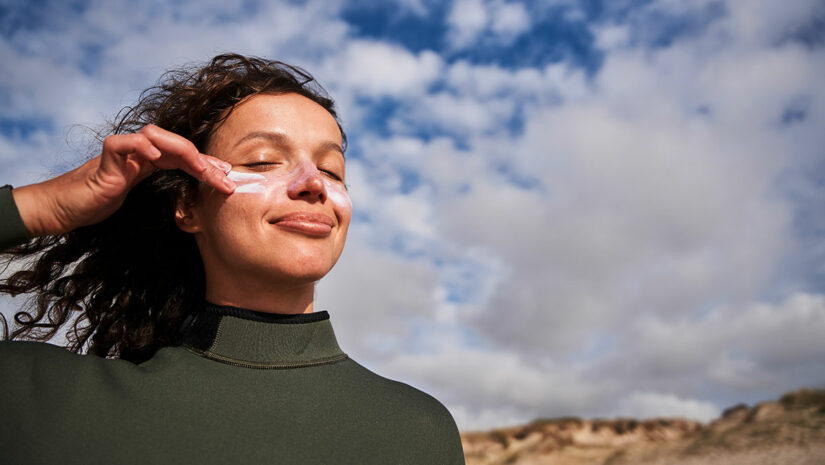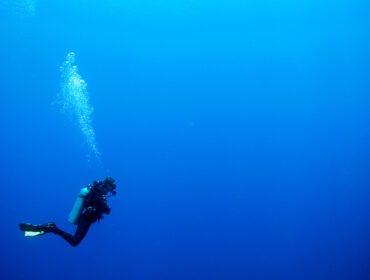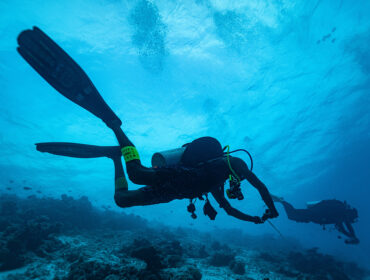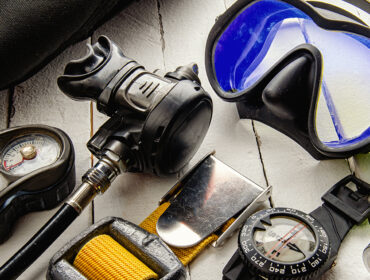One of the benefits of scuba diving is that you get to spend a lot of time in, on and around the water. Often, you’ll be on a boat, cruising to your next dive spot. Or you’ll possibly be gearing up on the beach getting ready for a nice shore dive. Besides having a lot of water around you, you’ll also be exposed to the sun. The sun is something to enjoy, but divers need to be careful as it’s very easy to get sunburned if you don’t take the right precautions. That’s why sun protection is even more important if you’re spending your days out on and in the water.
Scuba divers are more vulnerable to getting sunburned
There are a few factors scuba divers should be aware of that all contribute towards getting sunburned:
- There’s often very little shade available on dive boats or on the shore.
- Even if there is shade, water and sand reflect between 25% and 80% of the UV rays.
- Applied sunscreen washes off after a dive.
Besides the fact that sunburned skin really hurts, it also makes the body send fluids to the burned skin. These fluids will then evaporate once they reach the skin and thus, you’ll dehydrate quicker. Dehydration is a big no-no when it comes to scuba diving as it’s often related to decompression sickness. Decompression sickness is a medical condition caused by nitrogen (gas) bubbles trying to leave the body. One of the main advice scuba divers get to prevent this sickness, besides diving within their limits, is to hydrate well.
This alone is very good reason to prevent sunburns at any costs. And if that is not convincing enough, try getting into your wetsuit with sunburn!
Fortunately for us scuba divers, there are many ways we can practice sun protection and still enjoy the outdoors.
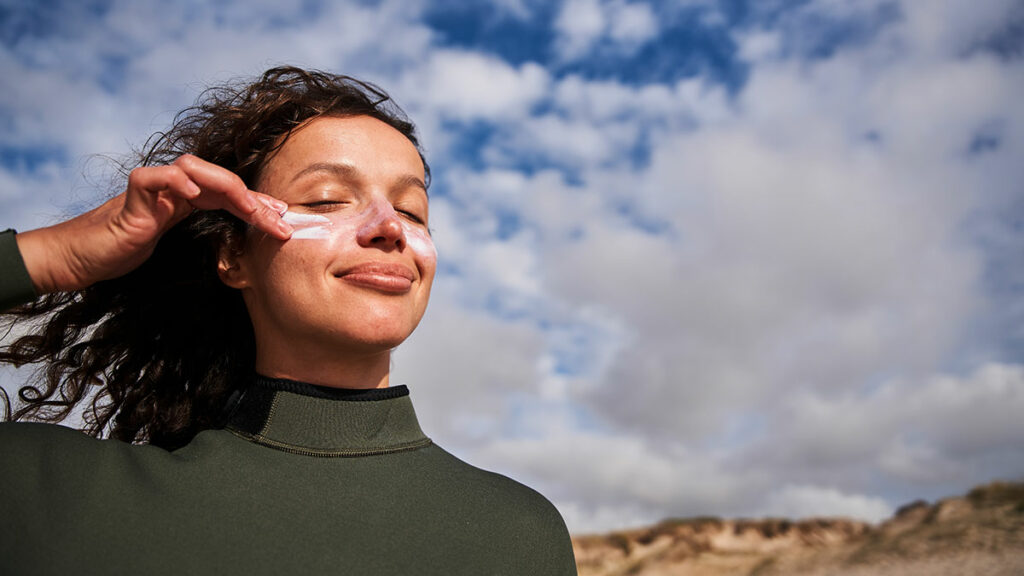
How to Prevent Sunburns While Scuba Diving
Get a reef-safe sunscreen and apply frequently
A great way to protect your face, ears and neck from the sun is to use sunscreen. We highly recommend you stick to reef-safe sunscreens that do not contain any chemicals that can harm the reef (or any marine environment). Many studies have proven that chemicals in regular sunscreen can damage a marine environment severely.
Most dermatologists recommend to use a sunscreen with SPF 15 or SPF 30. SPF stands for Sun Proof Factor. Does it normally take you about 10 minutes to burn in the sun? Then with a SPF 15 it will take 15 times as long, e.g. 150 minutes. However, many more factors come into play such as the intensity of the sun, your skin type, and how much sunscreen you’ve used. When it comes to sun protection, most people don’t use enough sunscreen. Experts recommend using an SPF 15 or SPF 30 and reapply the sunscreen every 2 hours.
Wear a rash guard to protect yourself from UV rays
Instead of applying sunscreen over your entire body, a great alternative for your chest is to wear one of the many great rash guard shirts that we have in our shop! In tropical waters, where the temperature is over 82F, it can even be sufficient to replace a wetsuit. Rash guard manufacturers have developed rash guards with a SPF 50+ protection. This makes them a popular choice of apparel with surfers, paddlers, and scuba divers. They’re light, breezy and they’re great for the marine environment as they save you from applying sunscreen. Bonus: rash guards also protect against jellyfish! They make a great alternative to a wetsuit in warm waters.
Wear a hat on the surface and a hood below the surface
A very easy way to protect your head is to wear a hat on the surface. A simple baseball cap can do the trick. Below the surface, or when getting and out the water, a lycra hood is good if you burn really quickly or don’t have a lot of hair. UV rays do penetrate through the water though in lesser amounts. Nevertheless, some people will really benefit from wearing a thin lycra hood such as the popular Lavacore hood with a built-in SPF 30+.
Don’t forget to protect your eyes
Finally, it’s very important to protect your eyes against the sun. Make sure to pack some polarized sunglasses so you can appreciate the reef and sea life to the fullest. Polarized sunglasses allow you to see through the water much better than regular sunglasses. In addition, they have a good UVA/UVB protection and they come in many different designs. They are available for every budget and will help you to spot those dolphins under the boat.

